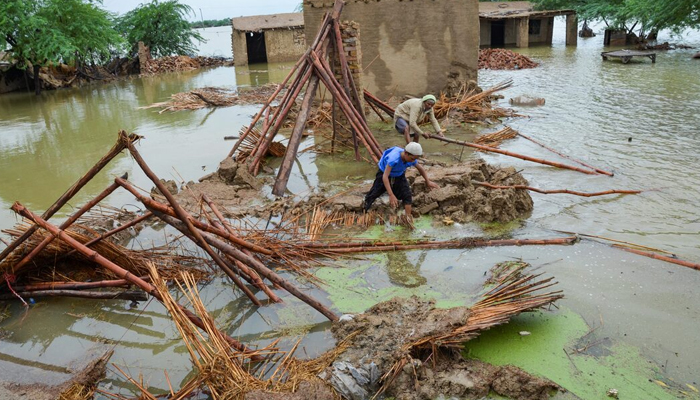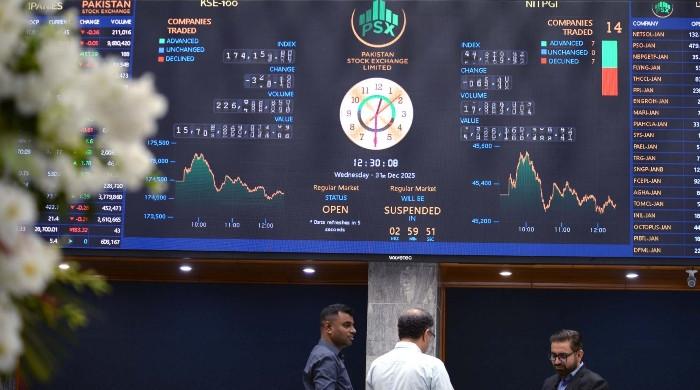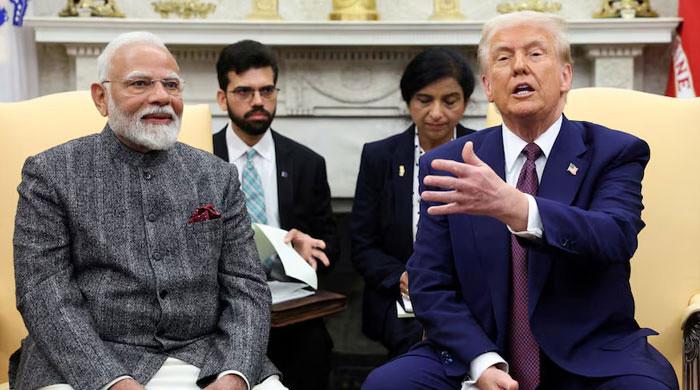Pakistan may suffer $1.2tr climate losses by 2050: British envoy
"To adapt to climate change's effects, climate finance is essential," says Martin Dawson
January 25, 2025

- Envoy says working with climate-vulnerable communities in GB.
- "We're not just in climate crisis, but nature crisis as well," he says.
- He speaks at '60th Wildlife Photographer of the Year' exhibition.
British Deputy Head of Mission Martin Dawson on Friday that if Pakistan fails to take urgent action to curb the impact of climate change, it could face losses of up to $1.2 trillion by 2050.
Speaking at the launch ceremony of the '60th Wildlife Photographer of the Year' exhibition at the British Council Karachi on Friday, the envoy said that the damage posed by climate change to the lives and livelihoods was immeasurable.
"To adapt to climate change's effects, climate finance is essential," Dawson said during the event being held under the aegis of the Natural History Museum, London.
In this regard, he said, the United Kingdom (UK) had recently launched its Climate Finance programme, which would help mobilise half a billion people in climate finance and invest in new climate-friendly technologies, business models and private sector solutions.

Through its climate programmes, he said, the UK government had helped over 1.5 million people increase their resilience against extreme climate events.
"We're working with climate-vulnerable communities in Gilgit-Baltistan and Khyber Pakhtunkhwa to help them improve their water systems."
This is the first time, photo exhibitions of the 'Wildlife Photographer of the Year' are being held in Pakistan. After Karachi, a similar exhibition would be held in Lahore.
Supported by the Natural History Museum in London, it is the longest-running and most prestigious competition of its kind and has received around 60,000 entries in its 60th year.
Each year, 100 wildlife photographs are selected for their originality, narrative and demonstration of ethical practice.
The competition was founded in 1965 for the BBC Wildlife Magazine, then called Animals. The competition exhibits the very best of nature photography and is used to empower people wanting to protect the planet.
"This competition and these photographs are reminders of the world's beauty and that we must protect it. That's a mission close to the UK's heart," Dawson said.
He said that the UK government led the Darwin Initiative, a grants scheme that helped conserve biodiversity worldwide and support the communities that live alongside areas with biodiversity through locally led projects. He added that the Illegal Wildlife Trade Challenge Fund was another initiative supported by the UK government that aimed at protecting biodiversity.
He said that globally, these initiatives had prevented over 400,000 hectares of ecosystem from being destroyed. "And we're protecting 2.7 million hectares of land with sustainable management practices."
The British envoy remarked that no other country could have been a better place to celebrate and showcase wildlife photography than Pakistan.
"From the snow leopard who trails the north of the country to the hog deer here in Sindh, Pakistan's biodiversity is breathtaking, but it's also under threat," he asserted.
Once found widely amongst the swamp areas and rivers in the forests of Sindh, he said, the hog deer had now lost much of its habitat to floods. "And while they are once the king of the mountains, there are now only 4,000 snow leopards left in the wild," he remarked, adding that it had been estimated that only 200 to 400 snow leopards, who were otherwise known for surviving tough conditions, were left in Pakistan.
"Their fur, bones, and other body parts are highly sought after in the illegal wildlife trade. Additionally, their homes are being destroyed by construction, farming, rising temperatures, and extreme weather," Dawson said.
Pakistan’s biodiversity, he said, had decreased by 69% over the last 50 years or so from 1970 to 2022, while Karachi’s coastline had seen 200 hectares of mangrove forests lost between 2010 and 2022 alone. "We are not just in a climate crisis, but a nature crisis as well," he said.









